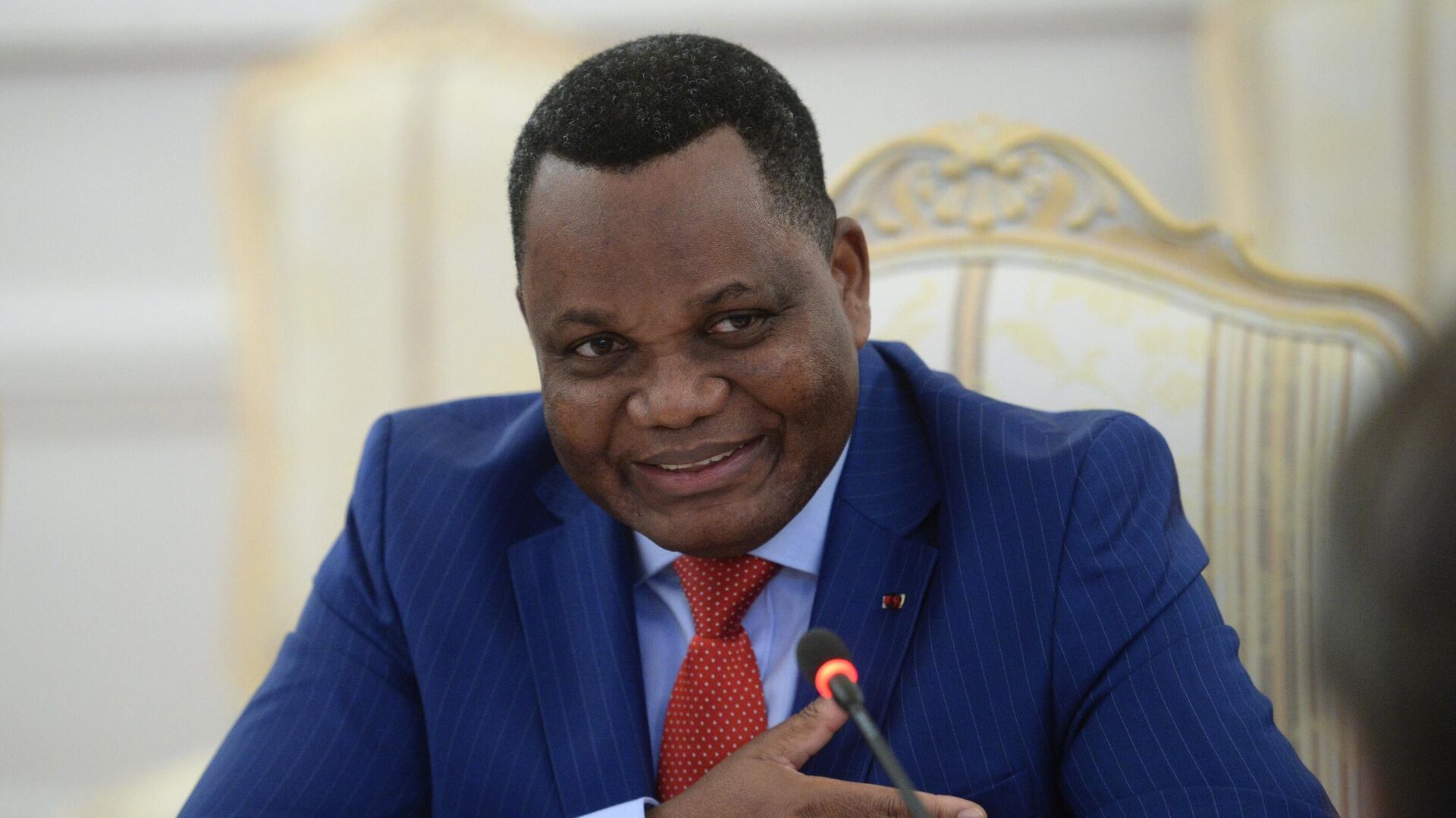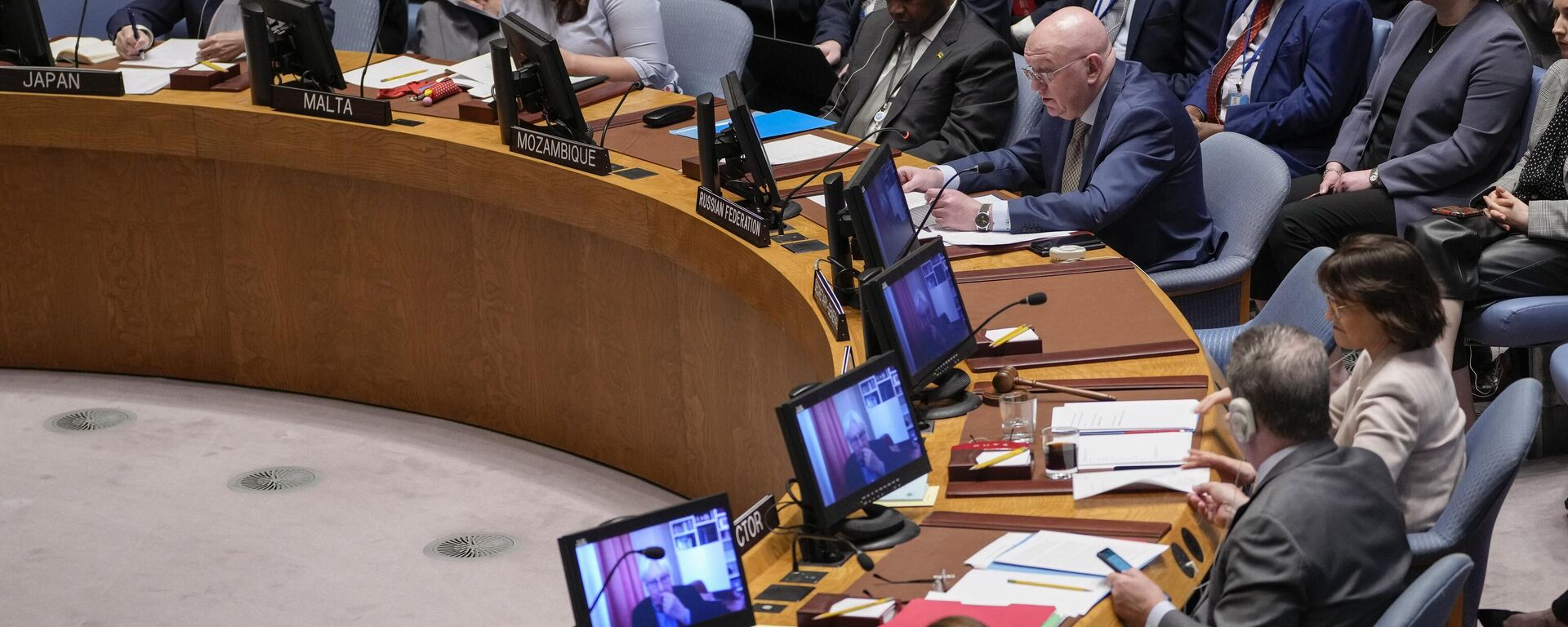https://en.sputniknews.africa/20240722/slow-but-irreversible-evolution-congolese-fm-on-au-joining-g20-and-why-it-took-so-long-1067594489.html
'Slow But Irreversible Evolution': Congolese FM on AU Joining G20 and Why It Took So Long
'Slow But Irreversible Evolution': Congolese FM on AU Joining G20 and Why It Took So Long
Sputnik Africa
For the first time, the African Union will take part in the next G20 summit as a member and not as an observer — Sputnik discussed the significance of this... 22.07.2024, Sputnik Africa
2024-07-22T15:15+0200
2024-07-22T15:15+0200
2024-07-22T16:49+0200
opinion
africa in details
republic of the congo (congo)
central africa
united nations (un)
african union (au)
rosatom
russia
vladimir putin
russia-africa cooperation
https://cdn1.img.sputniknews.africa/img/07e8/07/16/1067595373_0:16:2821:1602_1920x0_80_0_0_3f3c571306174e652f452f82a10fcd81.jpg
The African Union's admission to the G20 took a long time, but it was inevitable, Jean-Claude Gakosso, the Foreign Minister of the Republic of Congo, said in an interview with Sputnik.This awareness has led to the modern practice of including Africa in all significant assemblies and forums that determine global policies, of which the G20 is a prime example, according to Gakosso.Speaking about international organizations and Africa's participation in them, it was impossible not to recall the UN Security Council, or more precisely, the need for its reform so that the voices of the continent are heard.Gakosso reminded that currently, around 60% of security matters on the body's agenda involve the African continent. Hence, it's clear that these issues can't be addressed at the United Nations without an African representative. Moreover, this is the same mindset that recognizes how the world has changed and acknowledges the emergence of new actors on the global stage, he highlighted.Moving on, Sputnik discussed the African republic’s interaction with Russia in the fields of energy and education.Last week, the Russian state corporation Rosatom signed memoranda of cooperation with Brazzaville in the field of the peaceful use of nuclear energy and in the field of hydropower. The Congolese top diplomat explained that his country turned to Russia to resolve its energy issues since diplomatic and economic relations between the countries have lasted for 60 years and Russia is a "friendly nation" for Congo, while Rosatom is a "reputable company."What's also important is that, in the future, Congo may begin to export electricity outside the country. And although it’s too early to talk about it at the moment, the country’s potential is so great that the entire continent could be powered by Congolese electricity, according to the speaker.Regarding the second topic, Gakosso stated that education is the "foundation of everything," and Russia has been contributing to its development in Africa since the 1960s. He also recalled that thousands of Africans received their education in the "great nation" of Russia, for which the minister is very grateful.However, he touched upon the issue of outdated university programs in some African countries, which sometimes still follow the French curriculum from the mid-20th century, prioritizing the humanities.He also noted that the continent should develop not only on its own but also in relations with friendly countries.And Russia can help Africa with this, as it has "proven that it has very good universities" and is "welcomed" on the continent, the top diplomat concluded.
https://en.sputniknews.africa/20240529/africas-underrepresentation-on-un-security-council-no-longer-sustainable-says-zimbabwean-expert-1066784883.html
republic of the congo (congo)
central africa
russia
Sputnik Africa
feedback@sputniknews.com
+74956456601
MIA „Rossiya Segodnya“
2024
Christina Glazkova
https://cdn1.img.sputniknews.africa/img/07e7/0b/07/1063380906_0:0:673:674_100x100_80_0_0_79628b4d0cd9f29291a57aa13bbf9e7a.jpg
Christina Glazkova
https://cdn1.img.sputniknews.africa/img/07e7/0b/07/1063380906_0:0:673:674_100x100_80_0_0_79628b4d0cd9f29291a57aa13bbf9e7a.jpg
News
en_EN
Sputnik Africa
feedback@sputniknews.com
+74956456601
MIA „Rossiya Segodnya“
Sputnik Africa
feedback@sputniknews.com
+74956456601
MIA „Rossiya Segodnya“
Christina Glazkova
https://cdn1.img.sputniknews.africa/img/07e7/0b/07/1063380906_0:0:673:674_100x100_80_0_0_79628b4d0cd9f29291a57aa13bbf9e7a.jpg
africa in details, republic of the congo (congo), central africa, united nations (un), african union (au), rosatom, russia, vladimir putin, russia-africa cooperation, education, united nations security council (unsc), reforms, g20
africa in details, republic of the congo (congo), central africa, united nations (un), african union (au), rosatom, russia, vladimir putin, russia-africa cooperation, education, united nations security council (unsc), reforms, g20
'Slow But Irreversible Evolution': Congolese FM on AU Joining G20 and Why It Took So Long
15:15 22.07.2024 (Updated: 16:49 22.07.2024) Christina Glazkova
Writer / Editor
Exclusive
For the first time, the African Union will take part in the next G20 summit as a member and not as an observer — Sputnik discussed the significance of this event, as well as other topics, with the head of diplomacy of the Republic of Congo.
The
African Union's admission to the G20 took a long time, but it was inevitable,
Jean-Claude Gakosso, the Foreign Minister of the Republic of Congo, said in an interview with
Sputnik.
"Well, in fact, it's a slow but irreversible evolution. Recognizing what African peoples represent wasn't always obvious. You know, the tragedy of humanity has been the ignorance of some by others. For centuries, due to a lack of knowledge, it was believed that certain people had no brains, no souls. But in the 20th century, thanks to the progress of science and medicine, we realized that we're all made from the same clay; we're one single human race," he said.
This awareness has led to the modern practice of including Africa in all significant assemblies and forums that determine global policies, of which the
G20 is a prime example, according to Gakosso.
"We have applauded and are grateful to all the countries that contributed to bringing Africa into the G20, so that this part of the world can have a voice and express itself uniquely," he added.
Speaking about international organizations and Africa's participation in them, it was impossible not to recall the
UN Security Council, or more precisely, the need for its reform so that the voices of the continent are heard.
Gakosso reminded that currently, around 60% of security matters on the body's agenda involve the African continent. Hence, it's clear that these issues can't be addressed at the United Nations without an African representative. Moreover, this is the same mindset that recognizes how the world has changed and acknowledges the emergence of new actors on the global stage, he highlighted.
"Everything has changed, and this reality must be taken into account. Moreover, for us humanists, this approach reflects human fraternity. Human fraternity — I don't know if there's a value higher than that," the diplomat said, wrapping up this part of the interview.
Moving on, Sputnik discussed the African republic’s interaction with Russia in the fields of energy and education.
Last week, the Russian state corporation Rosatom
signed memoranda of cooperation with Brazzaville in the field of the peaceful use of nuclear energy and in the field of hydropower. The Congolese top diplomat explained that his country turned to Russia to resolve its energy issues since diplomatic and economic relations between the countries have lasted for 60 years and Russia is a "friendly nation" for Congo, while Rosatom is a "reputable company."
"One of the major problems we are facing in the Republic of Congo, and generally across the continent, is the energy deficit. [...] Our country is dotted with waterways, giving us immense potential in this area. Thus, we considered cooperation in the micro-dam sector and initiated talks during our visit to Moscow and St. Petersburg with Rosatom. [...] The discussions took place at the highest level, between President Vladimir Putin and President Denis Sassou-Nguesso," Gakosso said.
What's also important is that, in the future, Congo may begin to export electricity outside the country. And although it’s too early to talk about it at the moment, the country’s potential is so great that the entire continent could be powered by Congolese
electricity, according to the speaker.
"Thus, there is an excellent potential for abundant electricity production in Africa in the coming years," he said.
Regarding the second topic, Gakosso stated that
education is the "foundation of everything," and Russia has been contributing to its development in Africa since the 1960s. He also recalled that thousands of Africans received their education in the "great nation" of
Russia, for which the minister is very grateful.
However, he touched upon the issue of outdated university programs in some African countries, which sometimes still follow the
French curriculum from the mid-20th century, prioritizing the humanities.
"I'm not saying that these sciences are not needed by society, not at all. But it is evident that today's development needs should prioritize fields such as electrical engineering, construction, mechanical engineering, and new communication technologies," Gakosso emphasized.
He also noted that the continent should develop not only on its own but also in relations with friendly countries.
"It also needs to build economic power. All that is needed for this ... is precisely well-trained, well-educated executives, equipped to meet the new demands of development," he said.
And Russia can help Africa with this, as it has "proven that it has very good universities" and is "welcomed" on the continent, the top diplomat concluded.



